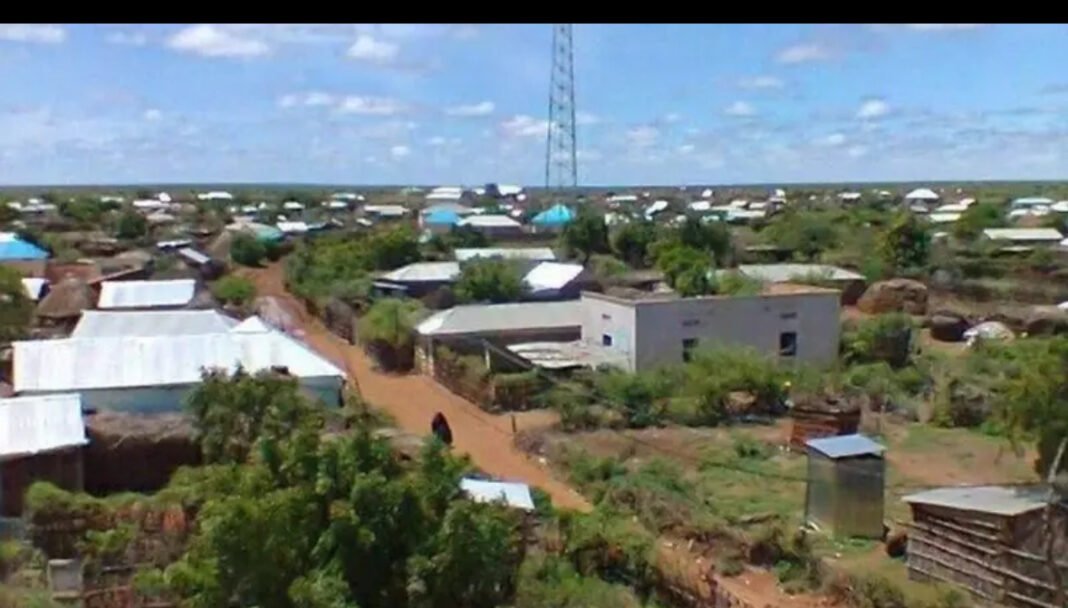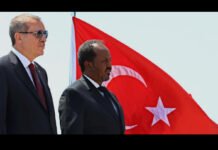By Horn Africa News Staff
Doolow – A long-standing political rift escalated once again on Tuesday after a military aircraft carrying federal troops from Mogadishu was denied permission to land at Doolow Airport, located in the contested Gedo region of southern Somalia.
Local sources confirmed that Jubaland authorities explicitly instructed airport officials to block the aircraft’s landing, arguing that there had been no prior coordination and that the deployment constituted an “unauthorized military intrusion” and a violation of regional authority.
The aircraft, which was carrying federal soldiers, was forced to return to Mogadishu, triggering a military standoff that underscored the deteriorating relationship between Villa Somalia (the presidential palace) and Kismayo, the seat of the Jubaland administration.
“The message was clear: Gedo will not accept unilateral troop deployments from Villa Somalia,” said a senior Jubaland security official who spoke to Horn Africa News on condition of anonymity. “The federal government must coordinate with Kismayo, not impose its will through force.”
The incident also disrupted civilian travel, with at least two commercial flights being delayed or rerouted, causing significant inconvenience to many passengers. Local residents voiced deep concern over the possibility of an armed confrontation.
Jubaland Vice President Mahmoud Sayid Aadan, who is currently touring the Gedo region, reportedly placed local security forces on high alert. He condemned the federal government’s move as a “violation of administrative law” and warned that “any outcome is possible.”
Meanwhile, growing speculation surrounds the possible reappointment of former Jubaland Security Minister Abdirashid Janan—a controversial figure—to lead a federal “stabilization campaign” in Gedo. His recent public appearance alongside Prime Minister Hamza Abdi Barre has fueled fears that the central government is preparing to assert renewed political pressure on Jubaland.
The Gedo region, which borders both Kenya and Ethiopia, has become a strategically sensitive and contested area over both political and military control.
The federal government continues to reject the legitimacy of Jubaland President Ahmed Madobe’s 2024 re-election, labeling it illegal and a setback to Somalia’s push for a “one person, one vote” democratic system.
This latest confrontation only deepens the existing political rivalry between the two sides, each seeking legitimacy both from the Somali people and the international community.
Adding to the danger, analysts warn that the continued friction between federal and regional security forces could create a security vacuum in which Al-Shabaab—still present in parts of Gedo—could thrive. Humanitarian operations in the drought-affected region may also be severely disrupted if political and military tensions obstruct aid routes and logistics.
So far, neither the Somali presidency nor Jubaland’s leadership has released an official statement on the incident. However, diplomatic insiders report that behind-the-scenes negotiations are ongoing to prevent the situation from spiraling out of control.
In the meantime, all flights into Doolow are now being handled on a case-by-case basis amid heightened military alertness on both sides.
Tuesday’s incident is widely seen as a sign of a much broader and potentially dangerous conflict brewing in Gedo—one that threatens not only local stability, but the future of Somalia’s federalism





